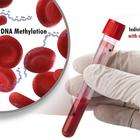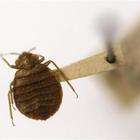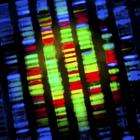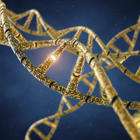Researchers Identify Striking Genomic Signature Shared by 5 Types of Cancer
February 5, 2024 10:38 am | by NIH/National Human Genome Research Institute | News | CommentsResearchers have identified a striking signature in tumor DNA that occurs in five different types of cancer. They also found evidence that this methylation signature may be present in many more types of cancer. The specific signature results from a chemical modification of DNA called methylation, which can control the expression of genes like a dimmer on a light switch.
Scientists Map Bedbug Genome, Follow Pest Through NYC Subway
February 3, 2024 10:48 am | by Verena Dobnik, Associated Press | News | CommentsScientists have mapped the genome of bedbugs in New York City, then traced fragments of the nefarious pests' DNA through the subway system.
Mapping Regulatory Elements
February 1, 2024 9:37 am | by Larry Hardesty, MIT News Office | News | CommentsResearchers describe a new technique for systematically but efficiently searching long stretches of the genome for regulatory elements. And in their first application of the technique, they find evidence that current thinking about gene regulation is incomplete.
Head Shape and Genetics Augment Understanding of Rattlesnake Species
January 28, 2024 11:31 am | by University of Illinois Urbana-Champaign | News | CommentsUsing head shape and genetic analyses, new research challenges the formerly designated subspecies within the western rattlesnake species. These findings have important implications for ecological conservation efforts across the United States and could provide the basis for new species designations.
Faster Drug Discovery?
January 28, 2024 11:05 am | by Rob Matheson, MIT News Office | News | CommentsGenometry has commercialized a high-throughput gene-expression assay, which operates at a fraction of the cost of conventional methods. It does so by using measurements of 1,000 genes to accurately and quickly estimate the activity of all the 20,000 or so genes expressed in a cell.
New Way to Detect Human-Animal Diseases Tested in Lemurs
January 27, 2024 11:31 am | by Duke University | News | CommentsAdvances in genetic sequencing are uncovering emerging diseases in wildlife that other diagnostic tests can’t detect.
Food Safety Consortium to Tackle Foodborne Illness
January 27, 2024 9:47 am | by Bevin Fletcher, Associate Editor | News | CommentsBio-Rad Laboratories Inc., a life science research and clinical diagnostic products manufacturer has joined IBM Research and Mars Inc. in the Consortium for Sequencing the Food Supply Chain. The consortium is harnessing the power of genomics and informatics to study microbiomes in food to help prevent contamination and foodborne illness at any step in the food supply chain.
Largest Prehistoric Marine Crocodile Discovered in Tunisia
January 21, 2024 9:47 am | by Greg Watry, Digital Reporter | News | CommentsLocated in southern Tunisia, Tataouine is a desert province located in a region marred by political conflict. In 2009, a team led by Univ. of Bologna’s Prof. Federico Fanti began working to unearth the fossilized remnants of the region’s prehistoric ecosystem
New Tool Puts Accurate DNA Analysis in Fast Lane
January 19, 2024 9:43 am | by Rice University | News | CommentsScientists have developed a tool to speed the design of molecular diagnostics that depend on the specific recognition of pathogen DNA and RNA.
Genomics, Cannabidiols Drive Epilepsy Research
January 19, 2024 8:46 am | by Bevin Fletcher, Associate Editor | Articles | CommentsScientists recently converged in Philadelphia for the American Epilepsy Society’s (AES) 69th Annual Meeting, touting new studies and insights in the field of epilepsy. Researchers discussed new findings, including personalized medicine, and the promise of Cannabidiol in human and animal studies.
Dog Domestication May Have Increased Harmful Genetic Changes
January 12, 2024 10:18 am | by UCLA | News | CommentsThe domestication of dogs may have inadvertently caused harmful genetic changes, a new study suggests.
Scientists Crack Wheat Genome
January 12, 2024 9:48 am | by Bevin Fletcher, Associate Editor | News | CommentsUsing bioinformatics tools and advanced software, a group of scientists have been able to sequence about 90 percent of the complex genome of bread wheat.
Gene Editing Improves Vision in Rats with Inherited Blindness
January 8, 2024 10:05 am | by Cedars-Sinai Medical Center | News | CommentsA new technique that has the potential to treat inherited diseases by removing genetic defects has been shown for the first time to hinder retinal degeneration in rats with a type of inherited blindness.
Neanderthal Genes Gave Modern Humans an Immunity Boost, Allergies
January 8, 2024 9:53 am | by Cell Press | News | CommentsWhen modern humans met Neanderthals in Europe and the two species began interbreeding many thousands of years ago, the exchange left humans with gene variations that have increased the ability of those who carry them to ward off infection. This inheritance from Neanderthals may have also left some people more prone to allergies.
Cancer-Suppressing Gene May Cause Colorectal Cancer Spread
January 5, 2024 8:33 am | by Ryan Bushey, Associate Editor | News | CommentsUniversity of Missouri School of Medicine researchers discovered that a cancer-suppressing gene called Sprouty2 may induce the growth of certain forms of colorectal cancer.
Study Identifies Liver-Generated Hormone that Regulates 'Sweet Tooth'
January 4, 2024 9:06 am | by University of Iowa | News | CommentsPrevious research explains how certain hormones affect appetite; however, these hormones do not regulate any specific macronutrient (carbohydrate, protein, fat) and are produced by organs other than the liver.
Study Uncovers Inherited Genetic Susceptibility Across 12 Cancer Types
January 4, 2024 9:04 am | by Washington University in St. Louis | News | CommentsIn a new analysis, researchers have shed light on hereditary elements across 12 cancer types — showing a surprising inherited component to stomach cancer and providing some needed clarity on the consequences of certain types of mutations in well-known breast cancer susceptibility genes, BRCA1 and BRCA2.
Microorganisms in the Womb Set Stage for Diseases
December 31, 2023 8:35 am | by University Hospitals Case Medical Center | News | CommentsResearchers review importance of microorganisms that exist in the gut, suggesting perturbation of the environment during pregnancy, delivery and early infancy could impact the developing baby's early microbiome and set the stage for health problems later in life.
Early-life Exercise Alters Gut Microbes, Promotes Healthy Brain and Metabolism
December 30, 2023 8:41 am | by University of Colorado, Boulder | News | CommentsThe human gut harbors a teeming menagerie of over 100 trillion microorganisms.
New Software Can Identify Drug Resistance from Bacterial Genomes
December 22, 2023 9:49 am | by University of Oxford | News | CommentsScientists have developed an easy-to-use computer program that can quickly analyze bacterial DNA from a patient's infection and predict which antibiotics will work, and which will fail due to drug resistance. The program can analyze the entire genetic code of a bacterium in under 3 minutes, once a bacterial sample has been cultured and its DNA sequenced.
Viral Infections Leave a Signature on Human Immune System
December 16, 2023 9:57 am | by Stanford University | News | CommentsA team of immunologists and informatics experts has identified a distinctive pattern of gene expression that distinguishes people with a viral infection from those with a bacterial infection. The team also identified a second pattern of gene expression that is more specific: It can distinguish the flu from other respiratory infections.
A Year in Biotech & Digital Health
December 16, 2023 8:28 am | by Ryan Bushey, Associate Editor | News | CommentsBioscience Technology took a look back at the year that was and rounded up the most interesting developments in biotech.
New Technique Reveals Gut Bacteria Diversity
December 15, 2023 10:00 am | by Stanford University | News | CommentsA collaboration between computer scientists and geneticists has produced a novel technique for mapping the diversity of bacteria living in the human gut.
Study Uncovers Hard-to-detect Cancer Mutations
December 15, 2023 9:31 am | by Washington University in St. Louis | News | CommentsNew research shows that current approaches to genome analysis systematically miss detecting a certain type of complex mutation in cancer patients’ tumors. Further, a significant percentage of these complex mutations are found in well-known cancer genes that could be targeted by existing drugs, potentially expanding the number of cancer patients who may benefit.
Six Reasons to Add Object Storage to Your Genomics Lexicon
December 15, 2023 8:42 am | by Claire Giordano, Senior Director of Emerging Storage Markets, Quantum | Articles | CommentsObject storage has been around for some time, but the technology is now gaining more and more traction in life sciences. This article outlines six reasons that organizations should add object storage to their genomics lexicon.
- Page 1
- Next
















